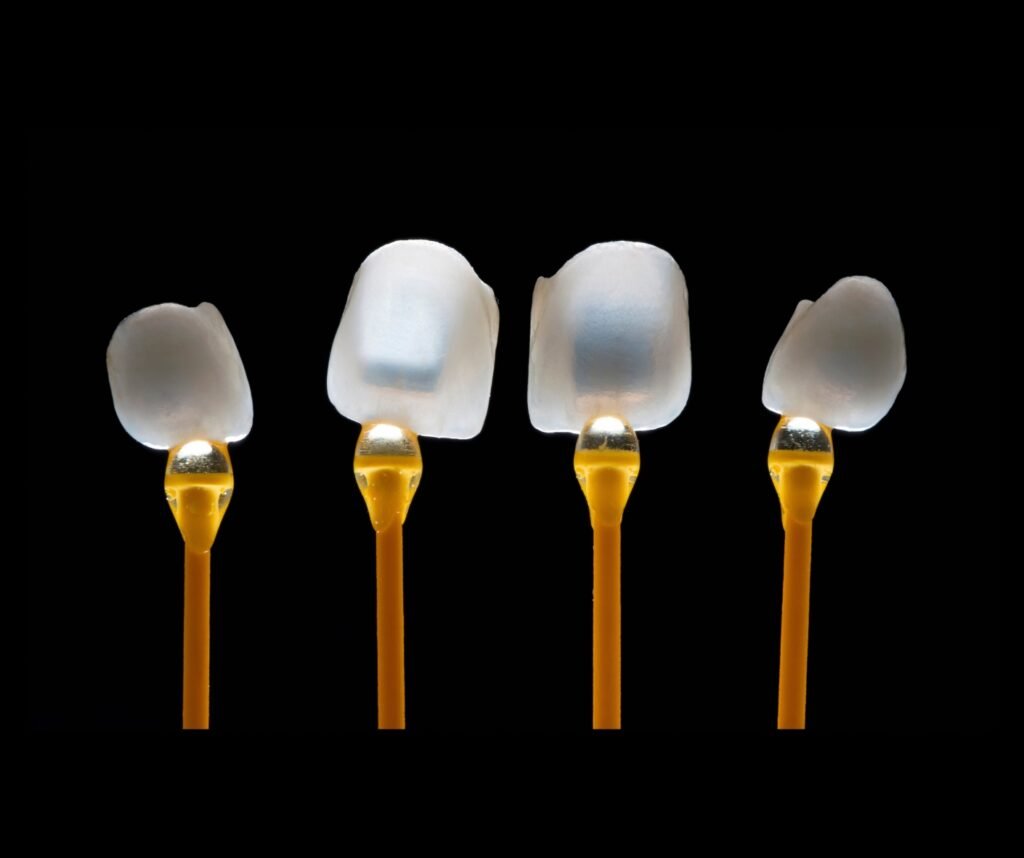The Complete Guide to Wisdom Teeth: When to Remove Them and Why
Tooth extraction is a common dental procedure, especially when it comes to wisdom teeth. These third molars often appear between the ages of 17 and 25, and while some people have no trouble with them, others experience discomfort or complications that make extraction necessary. In this guide, we’ll explore everything you need to know about wisdom teeth, including when tooth extraction is recommended and why it’s important for your oral health.

What Are Wisdom Teeth?
Wisdom teeth, or third molars, are the last set of teeth to emerge in the back of your mouth. Most people have four, but some may have fewer, or even none at all. These teeth served a purpose for our ancestors who needed them to chew coarse food like roots and meat. However, as human diets and dental care have evolved, the need for wisdom teeth has diminished. For many people, wisdom teeth cause more harm than good.
Why Do Wisdom Teeth Cause Problems?
Wisdom teeth can cause various issues due to their position at the very back of the mouth. As they attempt to emerge, they often become impacted, meaning they don’t have enough room to come in properly. This can lead to pain, infection, and other dental problems. In some cases, wisdom teeth grow at an angle, pushing against other teeth, which can cause crowding or misalignment.
In such situations, tooth extraction becomes necessary to prevent further complications. Wisdom teeth may not always cause noticeable symptoms, but your dentist can identify potential problems before they become serious.
When Is Tooth Extraction Necessary?
Tooth extraction for wisdom teeth is often recommended when they cause pain, swelling, or infection. Even if your wisdom teeth aren’t causing immediate discomfort, extraction might still be the best option to avoid future problems. Here are some common reasons why tooth extraction is necessary:
- Impacted Wisdom Teeth: When wisdom teeth are trapped beneath the gums or only partially erupt, they can cause infections and cysts.
- Crowding: Wisdom teeth can push other teeth out of alignment, leading to orthodontic issues.
- Decay or Gum Disease: Wisdom teeth are difficult to clean due to their position, making them more prone to cavities and gum disease.
- Damage to Nearby Teeth: In some cases, wisdom teeth can press against adjacent molars, causing damage or discomfort.
In each of these scenarios, tooth extraction is a preventive measure to protect your overall oral health.
The Benefits of Tooth Extraction
While the thought of having a tooth removed might be unsettling, there are many benefits to tooth extraction, especially when it comes to wisdom teeth. Here’s why it’s worth considering:
Prevents Pain and Discomfort: Removing problematic wisdom teeth can alleviate pain and prevent future discomfort.
Avoids Infection: Teeth extraction reduces the risk of infections, which can spread and cause serious health issues.
Improves Oral Health: Tooth extraction helps maintain the alignment of your other teeth and prevents issues like overcrowding.
Easier Cleaning: Once the wisdom teeth are removed, it’s easier to maintain good oral hygiene without having to worry about hard-to-reach areas in the back of your mouth.
By addressing wisdom teeth early through tooth extraction, you can avoid these complications and maintain a healthier smile.
What Happens During a Tooth Extraction?
The process of tooth extraction is straightforward and usually performed by a dentist or oral surgeon. Here’s what to expect during the procedure:
- Examination and X-rays: Your dentist will first examine your teeth and take X-rays to assess the position of your wisdom teeth. This helps determine the complexity of the extraction.
- Anaesthesia: To ensure a pain-free experience, local anaesthesia will be administered to numb the area around the tooth. In some cases, sedation may be offered if multiple wisdom teeth need extraction or if the patient is particularly anxious.
- Extraction: The dentist or surgeon will carefully remove the tooth. If the tooth is impacted, they may need to make a small incision in the gum. In cases where the tooth is deeply embedded, the dentist might need to break it into smaller pieces to remove it easily.
- Stitches and Recovery: After the tooth extraction, the area may be stitched up to promote healing. Recovery typically takes a few days, and your dentist will give you advice on managing pain and ensuring proper healing.
Recovery After Teeth Extraction

Recovering from teeth extraction, especially wisdom teeth removal, is usually quick and uncomplicated. Here are some tips to ensure a smooth recovery:
- Rest: Take it easy for the first 24 hours after the procedure. Avoid strenuous activities that might disturb the healing process.
- Ice Packs: Applying an ice pack to the outside of your cheek can help reduce swelling and pain.
- Soft Foods: Stick to soft foods like yoghurt, soup, and mashed potatoes for the first few days to avoid irritating the extraction site.
- Avoid Smoking: Smoking can slow down the healing process and increase the risk of infection, so it’s best to avoid it during recovery.
- Rinse Gently: After the first 24 hours, you can rinse your mouth gently with salt water to keep the area clean and prevent infection.
Most people feel back to normal within a week of tooth extraction, but it’s important to follow your dentist’s instructions closely to avoid complications.
Do All Wisdom Teeth Need to Be Removed?
Not all wisdom teeth require extraction. Some wisdom teeth come through without any problems and can remain in the mouth without causing harm. However, it’s essential to keep an eye on them with regular dental check-ups, as they may still cause issues later in life.
In cases where wisdom teeth are fully erupted, properly aligned, and easy to clean, extraction might not be necessary. Your dentist will be able to provide advice based on your individual situation.
Conclusion: Wisdom Teeth and Tooth Extraction
Wisdom teeth often bring more trouble than they’re worth, and tooth extraction is a common solution to prevent or resolve these issues. Whether it’s to avoid pain, prevent infection, or maintain the alignment of your other teeth, teeth extraction offers many benefits for your overall oral health. If you’re experiencing discomfort or your dentist has advised that you need your wisdom teeth removed, don’t delay. The earlier you address the problem, the smoother the process will be, and the better your chances of avoiding future dental complications.
Regular visits to your dentist will ensure any issues with your wisdom teeth are caught early, and if needed, tooth extraction will keep your smile healthy and pain-free for years to come.
Good article, thank you